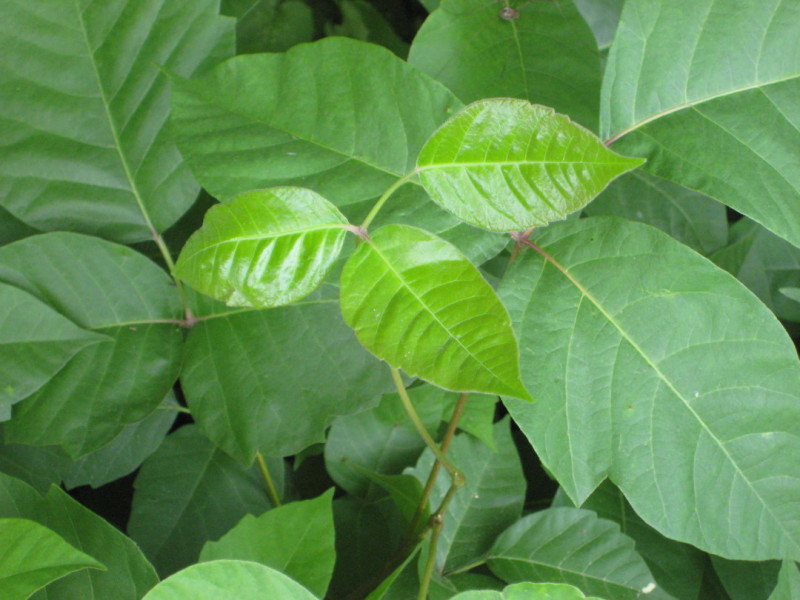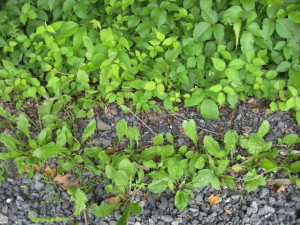True or false? You can always spot poison ivy because it’s shiny.
Standardized tests aside, answers in real life are rarely straightforward–absolutely true or completely false. Poison ivy shiny? True, sometimes, especially in spring. False, most of the time.
New poison ivy growth is conspicuously shiny. The littlest baby leaves starts out almost pure red, but soon the reddish tinge fades, keeping just a hint of pink at the base of the leaflets. But the young new growth keeps its shininess even as it greens up. It’s a week or so before it fades to a nondescript dull green. 
No one knows for sure why this happens, but the shine is probably an adaptation to keep the young growth from losing moisture. A shiny surface on leaves is often waterproof, and the enamel-like gleam probably serves to keep the young leaf from drying out. Poison ivy is very tolerant of hot dry environments, even growing on sand dunes or on the edge of blacktop, where water is in short supply.
Poison ivy is always maddeningly tough to identify. Shiny leaves? Could be poison ivy. But other plants use the same survival strategy, so shiny doesn’t necessarily mean PI. Reddish? Maybe, maybe not. The only thing that’s certain is that the middle of the three leaflets has a long stem, while the side two leaflets have no stem. Look for that pattern–it’s the one reliable clue that you’re standing ankle-deep in poison ivy.
Itching to know more? Check out my books:
In Praise of Poison Ivy: The Secret Virtues, Astonishing History, and Dangerous Lore of the World’s Most Hated Plant. Identification, tips for healing the itch, and why birds love PI–everything (and more) that you ever wanted to know about poison ivy.
Leaflets Three, Let It Be! A picture book for pre-K to Grade 3, to help the youngest explorers enjoy nature safely.





Recent Comments